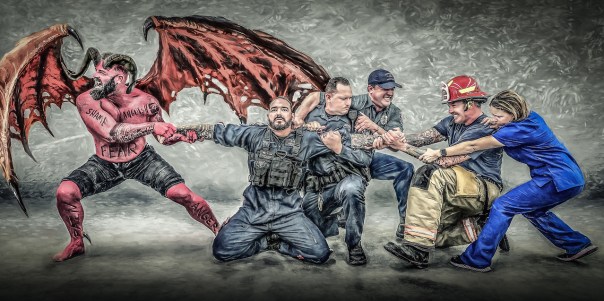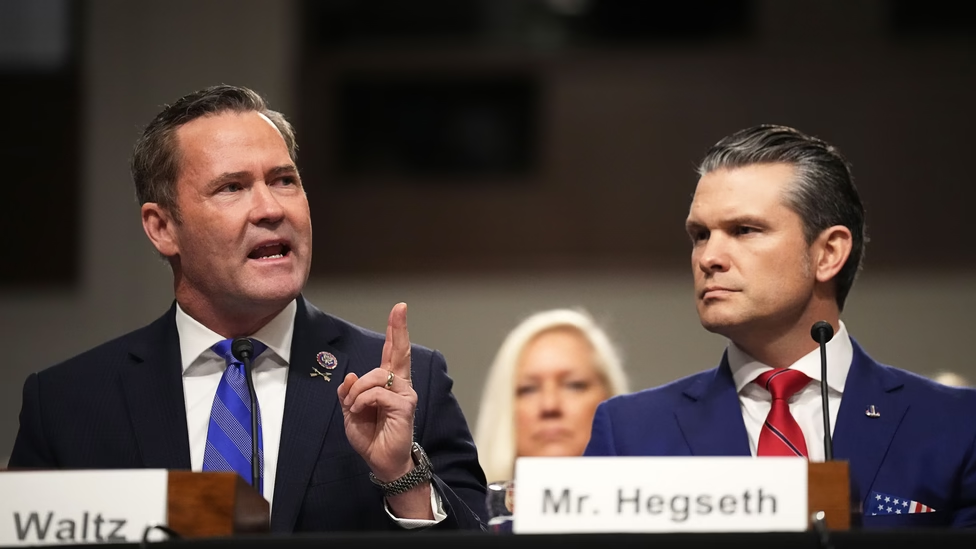
Word has it that the next generation is declining the opportunity to make families and raise children because they are afraid they can’t be a success at parenting. Researchers are collecting reasons for this new outlook:
- Therapists have taught them their parents caused all their problems and they don’t want to mess up any more children.
- Donald Trump and his cronies have disrupted the world to smithereens and climate change is hovering over them, so they don’t think it is responsible to doom a child to a failed life.
- They can’t imagine having the permanent relationship that is the best-case scenario for raising a happy kid. Besides, they already have a demanding relationship with their phone. Alone is safer.
Preoccupied with success
Pondering how children are successfully bred points out how preoccupied we are with success. Achieving it is an endless uphill battle and many people feel like they are slipping down the slope. If I am a thirtysomething, success is that goal, that destiny-yet-to-be-realized for which I am responsible. My education has been laced with “Find what you can do successfully and concentrate on it,” and “Make choices that make you happy. It’s up to you.”
My nephew just graduated from the fire academy; it has been a lifelong goal. Now success for him will be finding a scarce job. I Googled job opportunities, and they are apparently out there in his vicinity. But good luck! Success is elusive.
Right now, I am unsuccessful at selling my jewel of a condo and am preoccupied with the process. I blame Trump for making everyone nervously clutch their money. But I also blame myself for buying it, for spending so much money on it, and for hiring an unscrupulous contractor to rehab it. My lack of success tends to haunt the background of my mind. Until I am successful, feelings of doom or distrust keep arising.
Is faithfulness really more important?
Christians often contrast being successful with being faithful. And so do I. This post is born of an attempt to stay faithful in spite of the stuff in the back of my mind. Success has to do with something external, something prospective, something we wear as an element of identity. Faithfulness is something internal, something constant, something we are, something as elemental to us as our birthright. Joy is not something you achieve; it is something you enter into.
I was talking about success vs. faithfulness with a long-time-together but yet-to-marry couple. They reported that wondering about the success of their relationship brought up quite a bit of judgment. Rather than receiving the love at hand, success judged their love according to what it should be, according to what “successful” loving looks like, whether they had ever been successfully loved in the way they idealized or not!
The idea of faithfulness was somewhat foreign to them. They were among those who come from dysfunctional households in which the parents were “faithful” but obviously not happy. The unconditional love that faithfulness implies did not seem like a good idea. They said their conditional love was what made the other person behave well enough to maintain the relationship. But they did look at each other and ponder whether it was their faithful conditional love, that mysterious commitment, which kept them together.
I’m on a little team which has been attempting, since the beginning of Lent, to start a new church within our church. So far, we have been notably unsuccessful in my eyes — I prefer miracle to methodical. At the outset, we agreed that one of the best things we could do in the face of Trump was build more opportunity for community. So far, most people are still torn up, not grafted into our new group. We may yet succeed if we are faithful to the vision and if we listened well enough to ourselves, the moment, and God in the beginning.
If we’re not occupied with success, then what?
It is not that easy to decide what a faithful person should be doing every day in this surreal era we’re getting used to. When I get out on the street in my counterdemonstration to Trump’s vanity parade in DC on June 14, I will not feel successful. Even if a million people show up at the flagship event in my hometown, Philadelphia, I will be wondering about who opted out. Yet I feel called and committed to be there and to keep at it until we at least don’t have psychopaths with nuclear weapons running us around. Even if we don’t get rid of them, I don’t want to miss being the real me doing what I am given to do.
Near the end of his ministry, we find the Apostle, Paul, instructing the Ephesian elders about what they should be doing every day once he has moved on (Acts 20:17ff). He encourages me to keep listening to the call of God instead of just making things work according to my own, often faulty logic. Paul starts with the example of his own faithfulness: “You’ve seen how I lived. And you know that my only concern is to finish the task that Jesus gave me.” As Paul would say elsewhere, “What is required of stewards is that they be found faithful” (1 Cor. 4:2).

In Paul’s economic world, a steward is just a servant. He doesn’t own the household business, the master does. His main responsibility is to do what he is given to do. He cares about the success of the enterprise, but doesn’t directly bear the costs or directly reap all the profits. If the owner assigns him to do something that tanks, he’s not to blame. If the owner assigns him to work at something that turns out to be a great success, any credit is shared. Success and failure are master words; faithfulness is the concern of stewards. That’s a big change in worldview for most of us.
Faithfulness is imperfect
A fourth reason we could add to the list for why younger people do not want to have kids might be science. They all learned to conduct an experiment to test the truth. Who wants their experimental process of raising a kid to prove they should not have raised a kid? Science teaches us to get things right; it is about mastering facts. Since we can’t really do that, a lot of us do nothing.
Paul taught the elders that completing the task Jesus started is desirable, but what is required is being faithful, running the race to the end whether you win or not. After all, it is Jesus crucified that saves the world — people still don’t think that can be a successful approach! In spite of what typical people think,Paul demonstrates that the question is not always, “Is this going to work out right? Can I be assured this is going to get me where I want to go? Can I guarantee I won’t make mistakes and mess up my kids?” The question is, more fundamentally, “What am I given to do right now in my situation? What’s my best shot to take?” We’re not responsible for accurately predicting what should happen or for perfectly making the right thing happen. We’re to be as faithful as we can be according to our present understanding of our assignment. Science is good. But living is not scientific.
I am relieved that my limitations are OK, but I also don’t like it. I really want things to work out according to how I estimate what success will be. Presently, that would mean selling my condo for as much as I want, undermining Donald Trump, making a new church happen, and having all my relationships plugged in and playing. I like to get things done. I’m more like a lot of us who get overwhelmed with the needs they see. What about the prisoners? Shouldn’t I foster a child or mentor elementary kids? What about food insecurity? Climate crisis? There are still housing issues in North Carolina! If you read this blog, you know I’m moved by a NYTimes article every day! I think it is good that we want to save the world — we’re partners with the resurrected Jesus, after all. But not every assignment from heaven has my name on it.
American Christians tend to ask, “Where can I make the biggest impact?” I think it would be better to start with “What does it mean to be faithful today where I’m at?” In Matthew 25 Jesus tells the parable about stewards taking care of the master’s money. A lot of preachers make that a story about how to be successful and not get thrown out of the Kingdom of God! But the key verse will always be: “His master replied, ‘Well done, good and faithful servant! You have been faithful with a few things; I will put you in charge of many things. Come and share your master’s happiness!’” We can probably do our best if we don’t spoil our efforts by gauging their future success or worrying too much about how much failure we’ve accumulated. The joy of the master is more a place of committed love than controlled outcomes.



 The term psychopath is sometimes used describe a sociopath who is simply more dangerous, like a mass murderer. They have no conscience (about 4% of the population). The only thing they really want is to “win.” The psychopath pretends to care but fails to recognize other people’s distress. They can follow social conventions when it suits their needs. Psychopaths are unable to form genuine emotional attachments. They have fake and shallow relationships designed to further their goals, which could be small or large, and which are usually unimagined by the 96%.
The term psychopath is sometimes used describe a sociopath who is simply more dangerous, like a mass murderer. They have no conscience (about 4% of the population). The only thing they really want is to “win.” The psychopath pretends to care but fails to recognize other people’s distress. They can follow social conventions when it suits their needs. Psychopaths are unable to form genuine emotional attachments. They have fake and shallow relationships designed to further their goals, which could be small or large, and which are usually unimagined by the 96%.

















 This is one of the most-told stories in the world. Despite the soldiers, the stone is rolled away from the tomb and Jesus enters the Sunday morning sunshine alive! The women coming to properly prepare his body after the sabbath see the tomb is empty; Mary Magdalene has the first conversation with the risen Jesus; the disciples see him. Hundreds of people
This is one of the most-told stories in the world. Despite the soldiers, the stone is rolled away from the tomb and Jesus enters the Sunday morning sunshine alive! The women coming to properly prepare his body after the sabbath see the tomb is empty; Mary Magdalene has the first conversation with the risen Jesus; the disciples see him. Hundreds of people 

